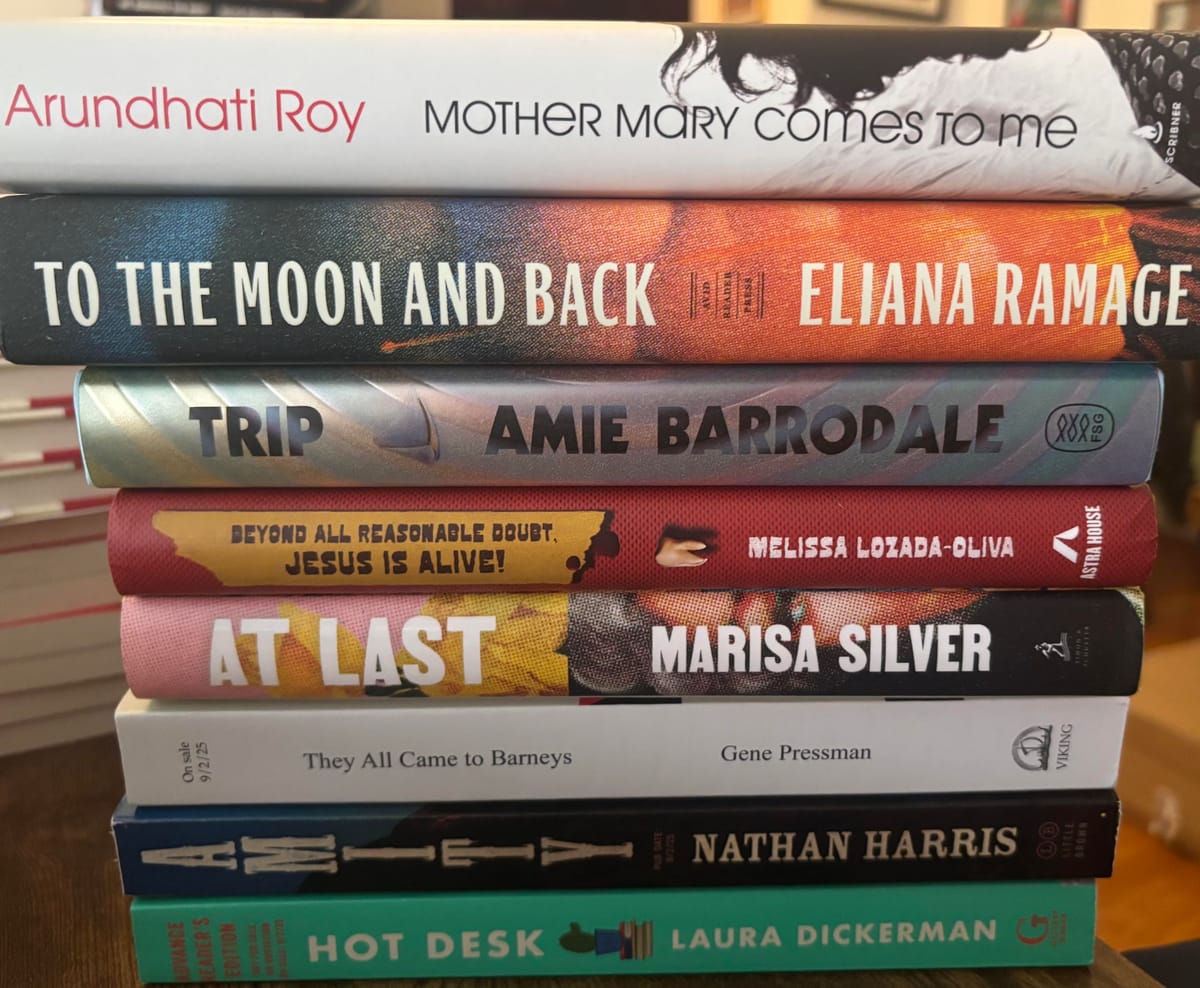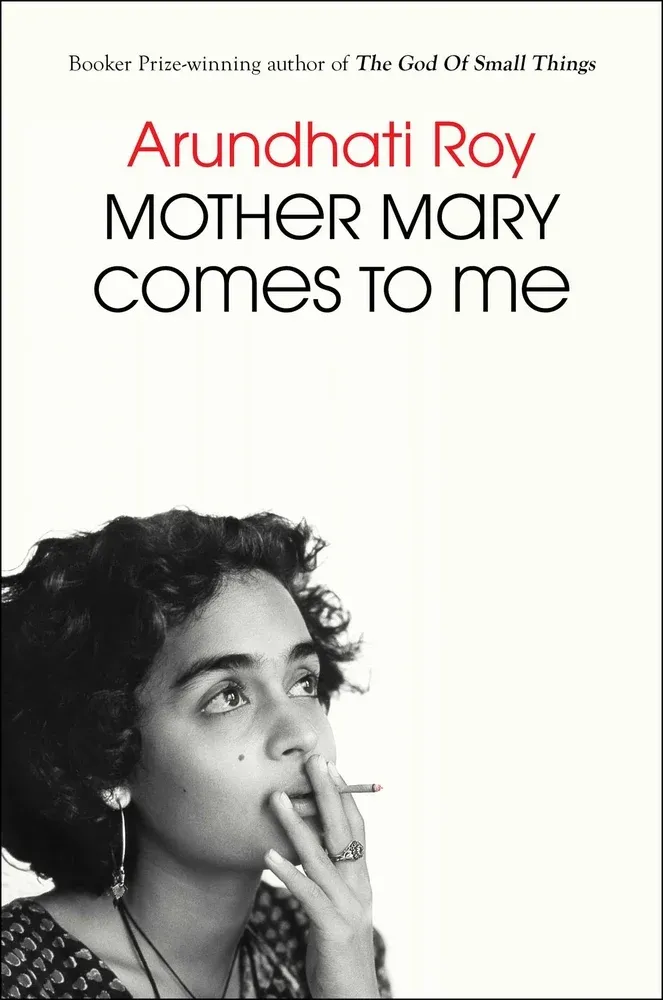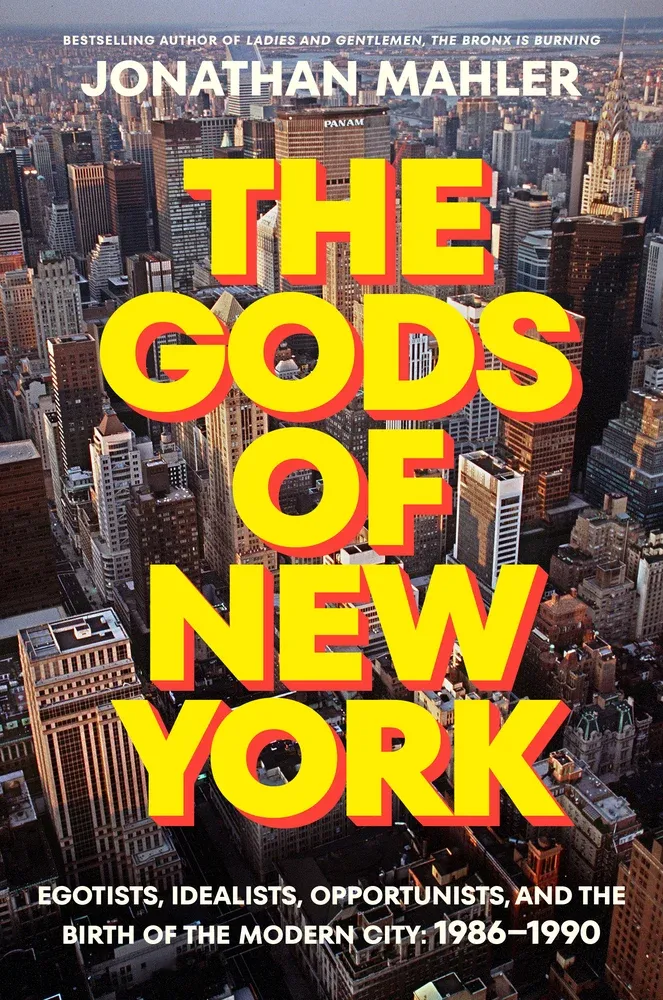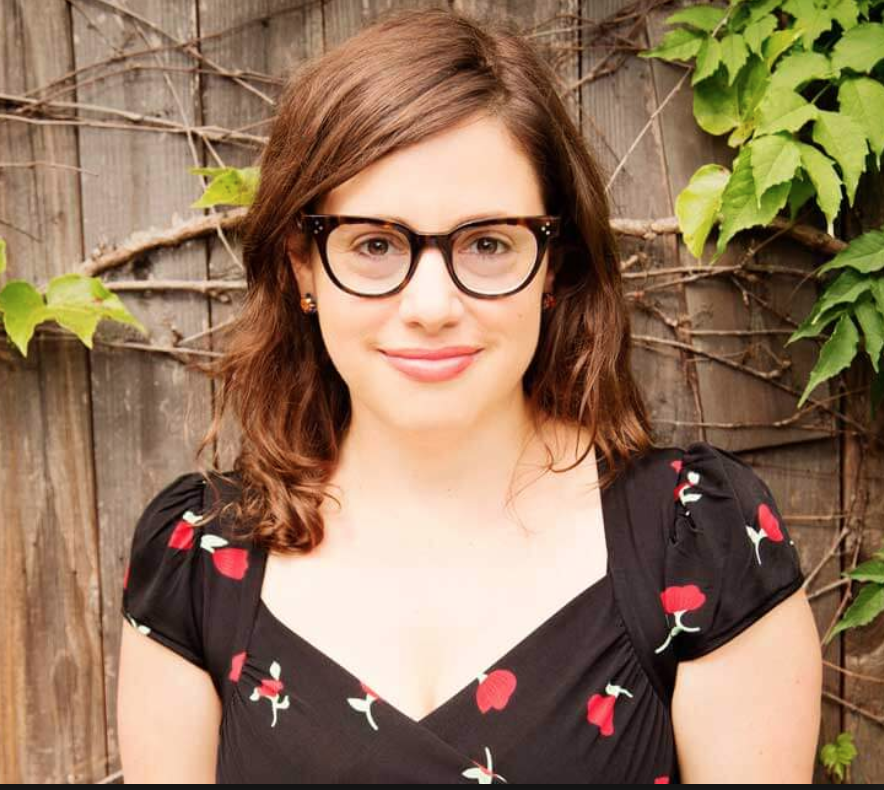The Maris Review, vol 70

What I read this week

Mother Mary Comes to Me by Arundhati Roy
Before I go on you should know that The God of Small Things is one of my favorite modern novels. I did a re-read about a year ago and it more than held up. So there's a particular thrill in reading Arundhati Roy's memoir and learning just how autobiographical her debut novel was. Reading the memoir you could directly map certain characters and settings from the novel (the siblings, the pickle factory, the river, etc) onto Roy's real life and get the stories behind the story in perfect sentence after perfect sentence.
The memoir is focused primarily on Roy's relationship with her mother, who died in 2022. Mary Roy was a canonical Mean Mommy: brilliant and outspoken, "difficult" with her peers but unrelentingly abusive and cruel to her two children. Mary founded a school in Kerala almost completely on her own ("quite often I found myself wishing I were her student and not her daughter," writes Arundhati, in both awe and terror) and in 1986 Mary brought a lawsuit to the Supreme Court demanding equal inheritance rights for Syrian Christian women in India after her brother inherited all of their dead father's assets. She won. Mary Roy became a feminist icon all while being a monstrous mother, a trope that seems not unfamiliar. The freedom to be a monster is itself a sad but substantial gain for feminism.
Arundhati knew she had to get away from Mary, and so at age 18, after graduating from architecture school, she begins to make a life for herself in Delhi and doesn't speak to her mother for seven years. She falls in love a few times and does some drugs and works in architecture and then in film until she decides to write the novel that changed her life. "I knew that if I could describe my river, if I could describe the rain, if I could describe feeling in a way that you could see it, smell it, touch it, then I would consider myself a writer." How lovely it is to witness her becoming a writer.
The most lovely part of Mother Mary Comes to Me is when Arundhati comes to terms with what it means to be a famous and successful author. What is the job of a writer if not to speak up for those whose voices are ignored? Mary's toughness lit the way to Arundhati's own calling to activism: "She hovered over me like an unaffectionate iron angel. The metallic swoosh of her iron wings spurred me to pick the big fights, not the small ones." I can think of no better legacy.
Welcome new subscribers
Get lots of exclusive book news and recommendations when you become a paid subscriber to The Maris Review
Last week my episode of Culture Studies with Anne Helen Petersen aired, and I have loved watching people find me from there. This is my whole deal. I read a lot and I have lots of opinions about books and publishing and I would love to share them with you (I also recently published an essay collection). As a bonus, I thought I'd go a little longer on all of the recommendations requests we received for the episode. I'm including a sample one below, but I plan to fill them all in, plus lots more, for paid subscribers only. So sign up if you'd like lots of recs or if you'd like to make a request?
From Monica: I like contemporary romance because it's so fast to read, and I like literary fiction (sometimes) because it can be so intriguing and unique. I really like it when these two areas intersect. Books I really like include Free Food for Millionaires by Min Jin Lee, Nora Goes Off Script by Annabel Monaghan, and Detransition, Baby by Torrey Peters. Generally, Sally Rooney's books fall into this Venn diagram, but I could not get into her most recent book.
It just so happens that the area where contemporary romance and literary fiction intersect is one of my favorite places to dwell. And I think, based on the books Monica mentioned above, she understands that literary fiction doesn't always have a happy ending and that's okay [insert cliche about how the journey >>> the destination].
recent bangers:
Liquid: A Love Story by Mariam Rahmani Persian
Theory & Practice by Michelle de Kretser
Margo’s Got Money Troubles by Rufi Thorpe
The Rachel Incident by Caroline O’Donoghue
All the Lovers in the Night by Mieko Kawakami, trans. by Sam Bett and David Boyd
my all-time favorites:
The Giant’s House by Elizabeth McCracken
Tipping the Velvet by Sarah Waters
Happy All the Time by Laurie Colwin
The Dud Avocado by Elaine Dundy – NYRB
What I read this week, part 2

The Gods of New York: Egotists, Idealists, Opportunists, and the Birth of the Modern City: 1986-1990 by Jonathan Mahler
When I was a child in suburban New Jersey in the 1980s I mostly learned what New York City was from watching NBC News. My overwhelming impression was that it was a place where a lot of crime happened and a lot of people were constantly yelling. Jonathan Mahler's micro-history of New York City at the time confirms my read, or at least the one presented to me in the media. It took years of living and working in New York City to understand that day to day life often has little to do with what gets covered in the news or on the front pages of tabloids.
The Gods of New York is an excellent primer on How and Why We Got This Way, how the political powder keg that was NYC in the late 1980s. The names of the people who dominate this book are still more than relevant in the worst way. Mahler confirms that my half-developed brain was right, though, in forming first impressions: Donald Trump was a supervillain who represented everything ugly about greed and who was actually bad at business, losing billions of dollars in investments in Atlantic City. He was a punchline to a bad joke when I first became aware of him, and there he remains.
Also making headlines in the late 1980s was Rudolph Giuliani, long before he became the Smithers to Trump's Mr. Burns and the whole Four Seasons Total Landscaping fiasco and his more recent car accident in which he was for sure not assisting in case of domestic violence. I will never be able to picture Rudy Giuliani in my head without seeing his awful hair dye mix with his profuse sweat while declaring Trump the winner of the 2020 election. But back in the 1980s he was prosecuting Wall Street types as the US attorney for the Southern District of New York (just remember as we witness the burgeoning gap between the rich and the poor in NYC that the enemy of my enemy is still not my friend). Not until the 90s did Rudy run for mayor as the candidate most appealing to all of Staten Island (derogatory) and win.
If there's a hero in this story, it's Spike Lee. But if there's a flawed protagonist to feel a bit of sympathy for it would be Ed Koch, the closeted 3-term mayor who seemed at least to try to do some good for the city before his administration crumbled into corruption. Maybe in his first term or two he was the exception that proved the rule of The Onion: it's hard to find a mayor of NYC that doesn't suck shit.
But it wasn't just the politicians committing crimes! There was the civil disobedience of fledgling AIDS activists and homeless activists, who, of course, were the real heroes of the era. The late 1980s also saw the tabloids making a spectacle of tragedy long before the era of true crime podcasts. There was the Preppy Murder, the Central Park Jogger, there was Bernhard Goetz and racially motivated murders in Bensonhurst and Howard Beach. Mahler takes us through the police investigations and the bleak and ugly as hell public opinions that came as a result.
I find it reassuring to revisit the strife of the 1980s and realize the gains we've made. Donald Trump no longer considers New York City to be his home, which I will take as a win. And yes, I'm worried about the state of American democracy in general, but it's a nice time to be a New Yorker (if you can afford the rent). Each day brings more and more stories of rich people who fear a Zohran Mamadani mayoral win, and that warms my heart more than just about anything.
New releases, 9/2

Mother Mary Comes to Me by Arundhati Roy
To the Moon and Back by Eliana Ramage
Trip by Amie Barrodale
Beyond All Reasonable Doubt, Jesus Is Alive!: Stories by Melissa Lozada-Oliva
At Last by Marisa Silver
They All Came to Barneys by Gene Pressman
Amity by Nathan Harris
Hot Desk by Laura Dickerman
Happiness and Love by Zoe Dubno
Mercy by Joan Silber





